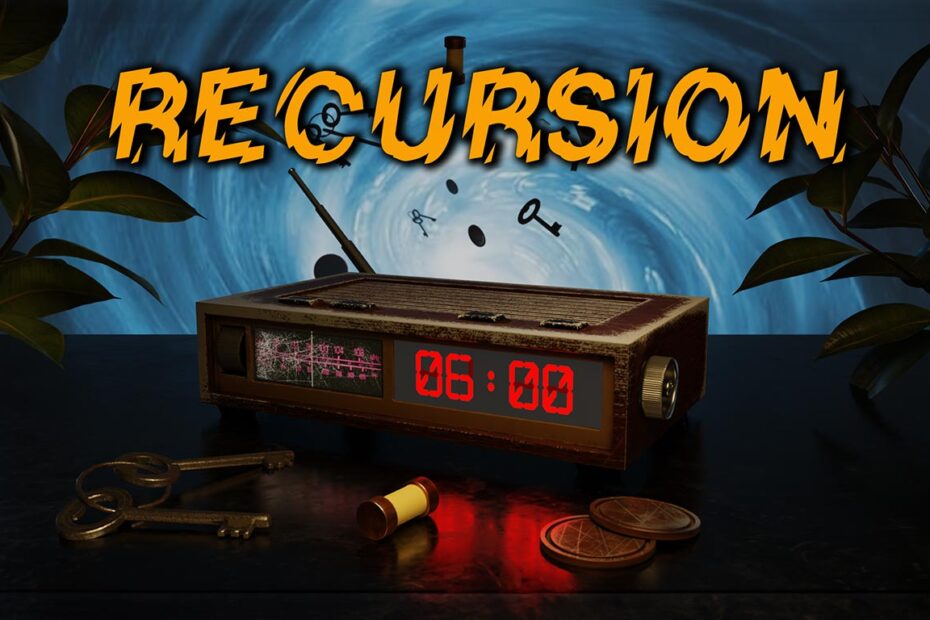Developer: Glitch Games
Price: $3.99/£3.99
Size: 357 MB
Version: 1.0.2
Platform: iPhone & iPad
One of the strongest emotions you’ll experience when playing Recursion is déjà vu. The most obvious reason for this is its Groundhog Day-like premise, which sees your character reliving the same time period (which can be set by you) again and again.
The other reason for the disconcerting sense of familiarity is that we’ve played this game before – or at least, something very similar. Glitch Games turns out lean, mean, and ingenious first person puzzlers at an impressively consistent rate, with only the setting and storyline really changing.
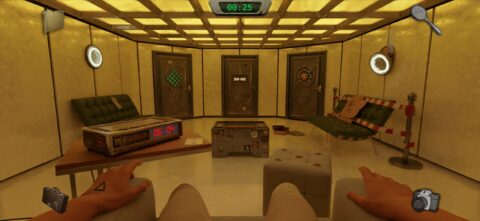
This is where you start the game – and each time loop
Once your character has awoken in a mysterious and largely static room filled with strange contraptions and symbols, you’re firmly back in territory previously marked out by Station 117, Incoherence, The Forgotten Room, and Forever Lost.
Tapping on said objects will zoom your view in and allow you to interact with them. You’ll need to employ logic, pattern recognition, wordplay, and spatial awareness to solve these disparate brain scratchers.
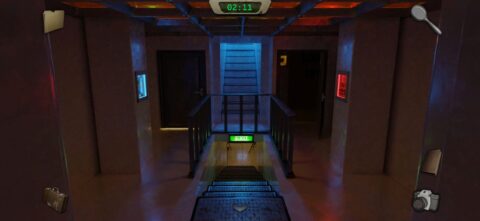
Glitch’s detailed static environments are as effective as ever
New to Recursion is that time loop mechanic, which poses some fascinating new conundrums. Run out of time and you’ll need to start from the beginning. That sounds like it could get annoying, but the developer smartly mitigates frustration by ensuring most of the locked box puzzles supply you with a code or solution to reach the next area, rather than an object.
Recursion leans even heavier on Glitch Games’s trademark camera, which lets you take snaps of the solutions you encounter. These images survive through your various resets, meaning that you can get back to where you left off extremely quickly.
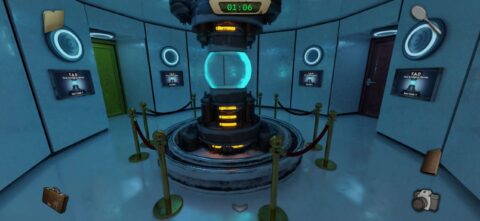
The TAD system lets you preserve objects between loops
Where objects or keys are required to progress, Recursion provides the Time Avoidance Device (or TAD for short). This lets you retain a single object between resets, allowing for some clever time manipulation solutions.
The main issues I had with Recursion were – you guessed it – rather familiar ones. There’s the inherent familiarity of the gameplay itself, as well as the fact that this is a very short game that you can wrap up within an hour if your brain is sufficiently agile. Even if it isn’t, Glitch’s contextual tip system can guide you through any snags you encounter – which is another element we’ve seen before.
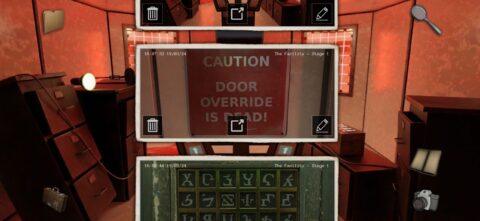
Glitch’s camera system is even more important here
If you’re nostalgic for that classic iOS game flavor, then Recursion serves up a rich slice of puzzling goodness. It’s comfortingly familiar, and it definitely won’t spoil your appetite, though it might just repeat on you.
